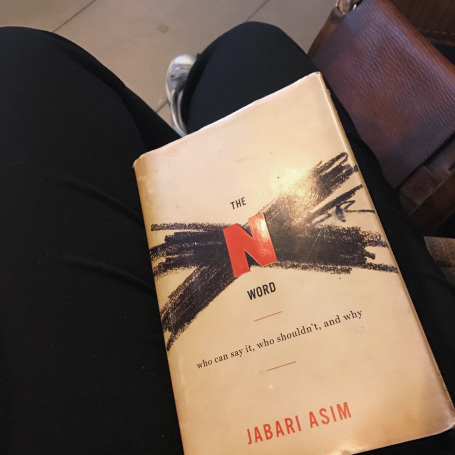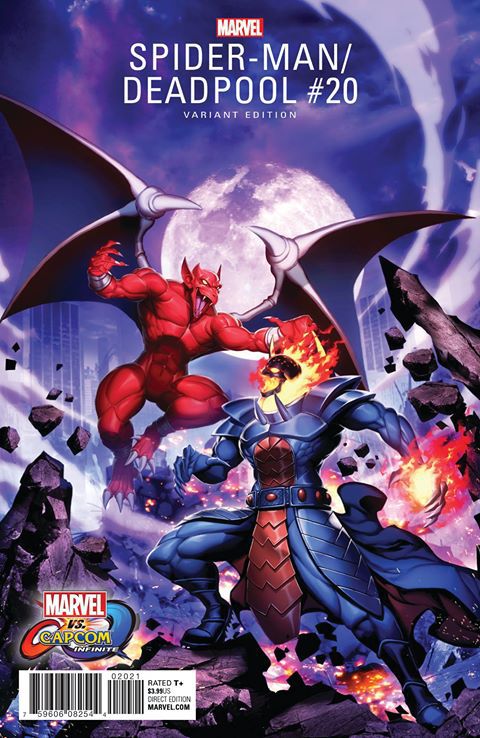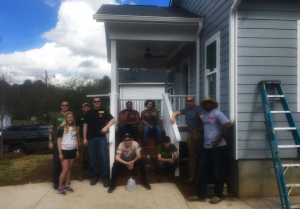Widad Nabi and Nihad Sirees: two Syrian writers who have found their way from a war-torn country to the cafés and bookshops of Berlin. In our interview they talk about writing in Syria and writing in exile.

Nihad Sirees and Widad Nabi in Berlin. © Christian Jungeblodt / Amnesty International
Widad Nabi, how did your work as an author change in exile?
Widad Nabi: Writing is the same in every place. Lately in Syria, I had been writing about the same topics that I write about here: war, death, the daily destruction. Here, I started writing about my escape from Syria, about longing for home, longing for all the places that we left behind.
In an interview you said that you could relate to the „Gruppe 47“ that formed in Germany after the Second World War with authors like Ingeborg Bachmann and Günter Grass frequenting the regular meetings. What parallels do you see?
I found out about the Gruppe 47 by chance. The group was started by young authors in Germany as a reaction to the Second World War. Today, 70 years later, I see that they had the same need to talk about the war, about the terror that it causes. Even in our writing style there are parallels. The authors of Gruppe 47 used an extremely realistic language, adapted to the rawness of war. Just like I do today. My style has become more realistic, whereas it used to be more literary.
What might be the reason for these parallels?
When you experience the details of destruction, of ruins and death, then your writing also becomes rougher. People feel the same everywhere, no matter what culture, language or nationality. There is a shared spirit. What the war did to people in Germany back then, it does today in Syria. What the people in Germany endured, the people are enduring in Syria right now. I wonder: if literature is aware of that, how come we are still enduring the same problems all over again, not only in Syria, but also in Yemen, in Somalia? People are starving, even though the same thing has happened before. Why can’t we get over that?
Nihad Sirees, how is life as a writer in a country whose language you don’t understand?
Nihad Sirees: Literature is more than just language. As a writer of novels I am interested in a society’s history, their culture, their music. Therefore, I feel isolated here. If I wanted to write about German society, my writing would be superficial. When I wrote about my hometown Aleppo, I wrote about everything that came to my mind. I acquainted myself with agriculture, with plants, birds, wild animals. All that makes a novel. If I sit down now to write something, I struggle. Everything that I knew, has been destroyed. All the people that I wrote about have died, left or disappeared.
How has the war in Syria changed the topics you write about?
Most of my works were written before the incidents in Syria. I wrote about society and historical events that have had an influence on the Syrian reality. I wanted to write for the progress of society, for the personal development of people. I wrote „The Silence and the Roar“ to take a stand against the totalitarianism that has developed in Syria since the sixties. I wanted to raise awareness and encourage people to choose the democratic path.
Is that still your goal?
I find it hard to continue my old projects. I often wonder if we as intellectuals have made a mistake. Have we failed, because we were not able to protect our country, the people, the children, our way of life? Did we fail as intellectuals, as writers? In the past I used to write in order to make Syrians aware. Now I write for the „others“, for the West and the rest of the world, so that they don’t make the mistake of considering the Syrian regime as an alternative to terrorism. This regime is responsible for letting things come this far. However, it is still too early to write about the war itself. Most works of world literature that talk about events like those in Syria were written after-the-fact.
Widad Nabi, during the protests in Aleppo, lines from your poems were sprayed on posters and walls. Are your poems political?

Widad Nabi was born in Kobane in 1985. The Syrian-Kurdish poet studied economics at Aleppo University. She has written for different Arabic newspapers. Her first volume of poetry „Time for love, time for war“ was published in 2013. In 2014 she escaped from Aleppo to Europe. Since 2015, she has been living in Berlin. Her second volume of poetry „Syria and the futility of death“ was published in Beirut in 2016.
WN: I never have the intention to write about politics. But they resonate at the heart of the text – for example, when I write about freedom in a country, in which there is no freedom, in which there is only totalitarianism and dictatorship. As a Kurd I learned to speak my mother tongue, but not to write it, because it was forbidden. Whoever learned Kurdish was jailed. At university, some Kurdish students and I tried to learn Kurdish – in secret and full of fear. If I write about freedom in such a country, I am writing about the regime without naming it, without mentioning the Baath Regime or Bashar al-Assad. In one poem I write: „There is a lot of space in this country: for the dreams of the dead, for the bodies of the martyrs, for bullets and fighter jets. And yet, there is not enough space for a tiny word: freedom.“
Did you ever have the freedom to write without any restrictions?
NS: In a country like Syria you have to write in a symbolic way. You have to express something without saying it directly. I can’t just write that the secret services did this and that. My writing would be banned and I would be in trouble. But I can write about the Egyptian President Gamal Abdel Nasser, who ruled with the help of the secret services. People will read that and compare it to their own reality. Writers in Syria always find new literary ways to avoid censorship and arrest. My works are always about politics. That is my project: to educate people and lead them in a democratic direction.
WN: Before the revolution nobody could talk about politics and the problems in our country. In 2011, that suddenly changed. We could take to the street and demonstrate for freedom and the fall of the regime. My generation lost its fear. We cheered and held up our signs. At the time I was writing for an opposition newspaper that was being printed in Turkey. I wrote about my friends in prison, about the war and the killing. I even wrote about it on Facebook. The revolution had erased fear from my heart. Before the revolution, we used to worry about every little word, but afterwards it was different. It was a state of freedom and a love of life. I had never experienced anything like it in Syria before. There was no democracy, but an overwhelming feeling of freedom. Then the air raids began and the young protesters disappeared from the streets.
Nihad Siris, in one of your novels the protagonist says, that poetry is for the masses whereas prose sharpens the mind of the individual. Do you think so as well?

Nihad Siris was born in Aleppo in 1950. He studied civil engineering in Sofia and founded a construction firm in Syria. Since 1987 he has been writing novels, stories, dramas and screenplays. His novel „The Silence and the Roar“ was translated into many languages and received the PEN-Award. It tells the story of a writer who is trying to escape the propaganda of a fictional totalitarian regime. The book was banned in Syria. Siris left for Egypt in 2012, escaping the repression of the Syrian regime. He has been living in Berlin since 2013.
NS: Yes, that is my personal opinion. Arabs are known for their poetry. One could even say, that Arabs are a people of poets. The first thing that was recorded on the Arab peninsula, was poetry. Arabs didn’t have wall paintings like in ancient Egypt. After all, they were living in the desert. You can’t write on sand, so Arabs had to learn everything by heart. That was the only way to record history and philosophy. To make it easier to memorize they made it rhyme. The Koran was composed in a certain rhyming prose. In the Koran, God and the Prophet Mohammed are praised. However, since the 20th century, rhyme and metre have been used to praise political leaders. Poetry became a means for dictatorial regimes to influence people.
What about prose?
NS: The novel is a kind of reckoning with the part of literature that served to praise and glorify dictators. That is why I am against rhymed poetry. Of course there are great, significant Arab poets. But prose nowadays combines wisdom, philosophy, politics, theater, literature. Prose promotes consciousness, discipline, an understanding of past and future.
WN: I am against this differentiation of genres. There is poetry in novels. There used to be rules for poetry, but nowadays everything is mixed, prose, poetry, even science can be combined in one text.
Do you want to go back to Syria?
NS: I hope to return to my country. I am very thrilled by Germany, a country that helps people in need. We were in need, we needed a refuge. But I have a daughter in Syria, a son in Turkey and one in Great Britain. I cannot visit them. All that I wish is for the war to end and to return to my country. Everyday I search the news for a glimpse of hope that the war might end. The longing is killing me. Not only the longing for the streets and coffee shops – they have been destroyed anyway. The places I know don’t exist anymore, neither do my friends. But I am longing for a country, for a family life. I have a dream that one day I will write a great work about this phase of my life and about what is happening in Syria.
WN: In summer 2014 I decided to leave Syria. It was a very bad time for Aleppo. I was standing at the border crossing in Dar al-Salam and I saw thousands of people in front of me trying to leave Syria. At that moment I said with full conviction: I will not return to this country. And I still feel that way. The places I lived in were destroyed. The people who shared my memories are gone. I really hope that the war in Syria ends, so that people can go back to their normal life. But me personally, I cannot return. I have lost everything there. There is not a single place or person left that I know.
Do you see your future as a writer in Germany?
WN: Yes, in Berlin. I have come to trust this city. I have become friends with the coffee shops and the bookshops. Here, I feel at home. Of course, I long for my country and my life there. I don’t want to abandon my roots, but I can find a new place for myself: in a country that offers me security, dignity, human rights – not in a country where I am humiliated every day as a human being. When I read books by German authors, I wish, that one day I will be one of them. I still find the language difficult, but one day I would like to write in German.
This article was first published in German in the Amnesty Journal 08/09 2017.
Advertisements Like this:Like Loading... Related




